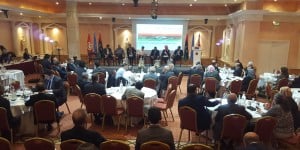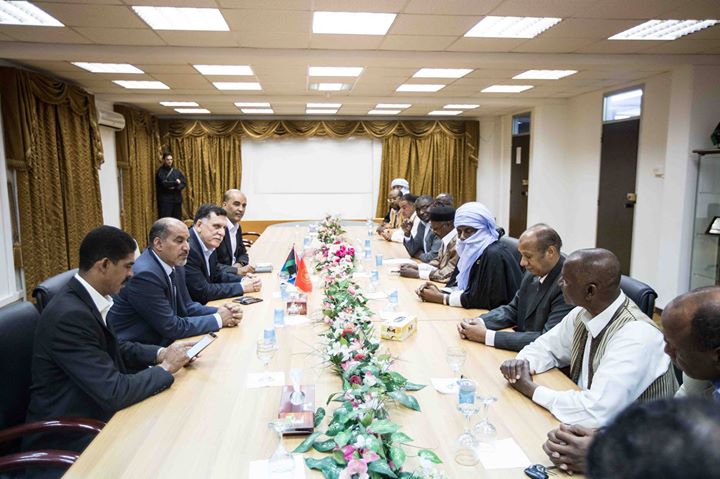By Libya Herald reporter.

Tunis, 1 April 2016:
The third meeting of the Libya Experts Development Cooperation Forum took place in Tunis between . . .[restrict]31 March and 1 April 2016, bringing together Libyan academics, policy makers, prominent experts, entrepreneurs and the international community.
The Special Representative of the Secretary General, Mr. Martin Kobler, delivered a key note speech on the current situation in Libya and the process of enhancing peace-building. He indicated the importance of the Forum in this critical moment for Libya and he expressed his gratitude to the participants for their contribution to the development in post-conflict Libya.
The Forum was formally opened by UNSMIL’s Deputy Special Representative for the Secretary General, Ali Al-Za’tari who hailed the arrival of the Libyan Presidential Council in Tripoli and indicated full support to the Government of National Accord (GNA).
Al-Za’tari, emphasized the importance of an institutionalized Forum and the impartial and measured advice it can provide to both international community and the GNA. “The Forum will suggest policy options to address the main challenges Libya is facing. It will provide advice and expertise in various stages of peace-building and state-building. It will act as an independent nationally owned platform for constructive dialogue and proactive discussion.” Al-Za’tari said.
Throughout the nine sessions of the Forum participants engaged in in-depth discussions on topics relevant to the current situation of Libya’s national institutions, economy and society. Issues of inclusive politics, sustainable management of national resources and a new social contract to underpin the relation of the government with its citizens were the main focus of the Forum’s attention.
The first day the Forum discussed enhancing procedural justice and participatory decision making at local level, women’s rights in the constitutional process and gender inclusive post-conflict governance, the role of the civil society in assuring government transparency and accountability.
On the second day the discussions covered practical steps to address the vibrant issue of social reconciliation as well as a youth mainstreaming strategy to address the vulnerability of Libyan youth to radicalization and extremism. The Forum equally debated a draft proposal for a three years interim national plan for post-conflict Libya: the National Integrated Agenda for Libya (NIDAL), to submit for the government’s consideration.
According to Mr. Mohammed Abdul Aziz, former Minister of Foreign Affairs and International Cooperation “The discussions was very timely especially because it coincided with the return of GNA to Tripoli to start serving its people. The institutionalization of the Forum was also extremely important; this assembly should now take the discussion forward and provide thematic recommendations to the Government.”
“Libyan experts do not have the chance to meet in Libya, so this was a great opportunity for exchanging views and strategic discussions; we hope we will be able to support the new government in the future. The discussion on the by-laws and the institutionalization of the Forum was the most important part as it enables us to function as a more organized body,” believes Dr. Amal Elobeidi.
The Forum’s sessions were facilitated by the United Nations Development Programme (UNDP), the World Bank (WB), the International Monetary Fund (IMF) and the United Nations Support Mission in Libya (UNSMIL). The Government of Switzerland has generously provided funding for this third edition of the Libya Experts Development Cooperation Forum and for the following session in 2016.
As scheduled, the Forum will reconvene quarterly. [/restrict]







